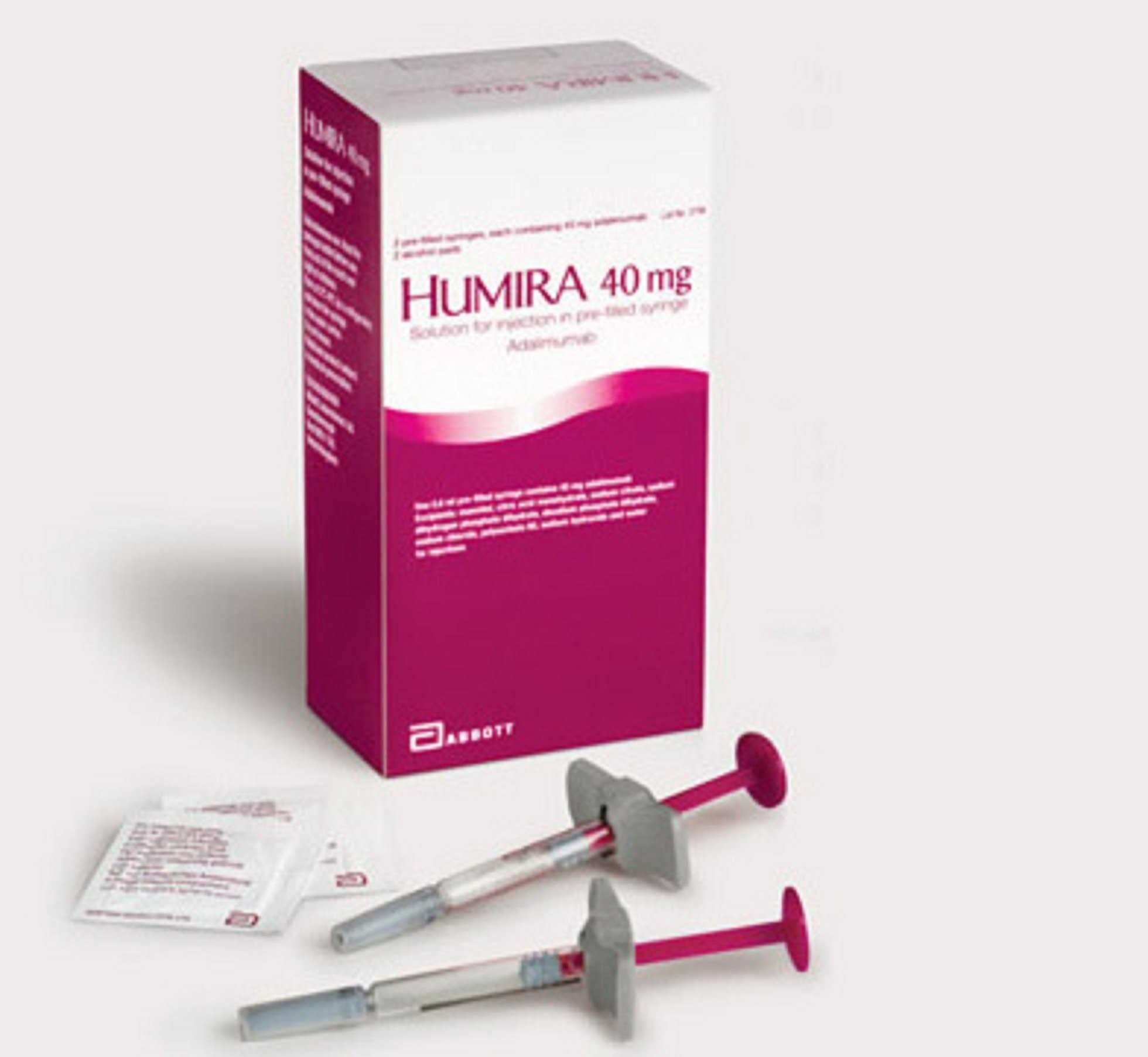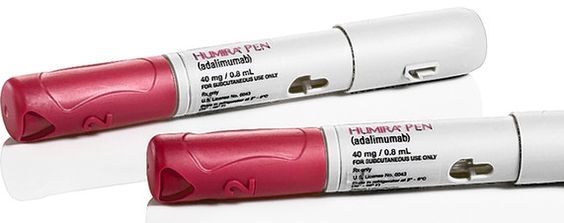When people are prescribed Humira, a medication otherwise known as adalimumab, they often have questions about its side effects, including whether it can cause weight gain. This medication is commonly used to treat a variety of autoimmune diseases, such as rheumatoid arthritis, psoriasis, and Crohn’s disease, by targeting and blocking TNF-alpha, a substance in the body’s immune system that causes inflammation.
As with many medications, patients taking Humira are attentive to changes in their body, one concern being fluctuations in weight. It’s important to note that weight gain is not listed as a direct side effect by the manufacturer. However, individual experiences and some clinical studies indicate that a subset of users may indeed experience weight changes, both loss and gain. Although the scientific community hasn’t established a definitive link between Humira and weight change, the interplay between the medication, disease symptoms, and other medications can potentially influence weight.
Reader's Roadmap
Key Takeaways
- Humira is a medication used to treat autoimmune conditions, with a particular focus on inflammation regulation.
- Weight change is not a primary side effect of Humira, but it may occur due to several factors related to the medication and underlying conditions.
- If a patient notices significant weight changes while on Humira, they may need to address this with their healthcare provider to manage their overall health.
What Is Humira?

In the journey to understand how medications impact our health, Humira is a name that frequently comes up, particularly when discussing treatments for autoimmune diseases.
Overview of Adalimumab
Humira, which is the brand name for adalimumab, is a biological medication specifically designed to act on the immune system. It belongs to the class of drugs known as tumor necrosis factor (TNF) inhibitors. Adalimumab is a monoclonal antibody, a type of protein that targets and neutralizes TNF, a substance in the body that causes inflammation and can lead to immune system diseases.
Therapeutic Uses
Adalimumab has a variety of therapeutic applications. It’s commonly prescribed to treat several autoimmune diseases, where the body’s immune system mistakenly attacks its own tissues. These conditions include:
- Rheumatoid arthritis: Helps reduce joint pain and swelling.
- Juvenile idiopathic arthritis: For children, it aids in reducing symptoms.
- Psoriatic arthritis: Aimed at controlling symptoms and preventing joint damage.
- Ankylosing spondylitis: Reduces spinal inflammation and manages pain.
- Plaque psoriasis: It helps in managing skin symptoms.
- Crohn’s disease: Aims to reduce symptoms and induce remission.
- Ulcerative colitis: Used to manage inflammation of the colon and rectum.
- Hidradenitis suppurativa: Helps manage this chronic skin disease.
- Uveitis: Controls inflammation inside the eye.
Through these uses, adalimumab can markedly improve quality of life for individuals suffering from these chronic conditions, highlighting its significant role in modern medical treatments.
Possible Side Effects of Humira
When considering Humira as a treatment, it is important to be aware of its potential side effects, which can range from common, less serious reactions, to more severe complications that may require immediate medical attention.
Common Side Effects
The human body sometimes reacts to medications like Humira in less severe ways that are considered common side effects. Patients often experience reactions at the injection site such as redness, itching, or swelling. These are typically mild and can resolve on their own. Headaches and skin rashes are also reported by some individuals using Humira.
- Injection Site Reactions: Redness, itching, swelling
- Others: Headaches, skin rashes
Serious Side Effects
While Humira can be effective in treating certain autoimmune conditions, it carries the risk of serious side effects, which should not be taken lightly as they can have significant health implications. The drug can reduce the ability of the immune system to fight infections, potentially leading to serious infections such as tuberculosis and hepatitis B reactivation in those with a history of infection.
Liver problems, nervous system issues, and heart failure have also been reported, although they are less common. There’s a potential increased risk of cancer, including lymphoma. Symptoms that may indicate liver damage include yellowing of the skin or eyes, while neurological changes can manifest as numbness or tingling, vision problems, or weakness in the limbs. Additionally, some patients might experience lupus-like syndrome and nerve disorders, including seizures.
- Infections: Tuberculosis, hepatitis B reactivation
- Liver Problems: Yellowing of the skin or eyes
- Nervous System: Numbness, tingling, vision problems, weakness
- Cancer Risk: Increased risk of lymphoma and other cancers
- Other Disorders: Lupus-like syndrome, seizures
Humira and Weight Changes

When it comes to Humira, a medication used to treat various autoimmune conditions, patients often wonder about the potential impact on their weight. This section sheds light on the connection between Humira and weight changes, investigating both the possibility of weight gain and addressing concerns related to weight loss.
Understanding Weight Gain
Potential Causes of Weight Gain: Patients might notice an increase in their weight while on Humira. While weight gain isn’t directly listed as a side effect by the manufacturer, there are indirect ways the treatment could contribute to added pounds:
- Decreased inflammation: As Humira reduces inflammation, patients might find their appetite returning, leading to an increase in calorie intake.
- Other medications: Concurrent medications used alongside Humira could have weight gain as a side effect.
Clinical Findings:
- In some studies, such as one at the 12-week mark, patients on Humira experienced an average weight gain of 1.5 kg (3.3 lbs), further increasing to an average of 2.2 kg (4.8 lbs) by week 24.
It’s crucial for patients to discuss any noticeable weight changes with their healthcare providers. They can help determine whether Humira or other factors are contributing to weight gain.
Addressing Weight Loss
Weight Loss Concerns: While less common, some patients may experience weight loss while using Humira. Factors that may contribute to this include:
- Side Effects Leading to Weight Loss: Gastrointestinal symptoms such as nausea or a decrease in appetite due to medication can result in weight loss.
- Fragmented Nutrition: Serious infections, a side effect of Humira, can disrupt regular eating patterns and lead to weight loss.
When facing unexpected weight loss, patients should consult their healthcare providers. The goal is to ensure weight changes are carefully monitored and addressed in the context of each individual’s treatment plan.
Managing Side Effects and Health Considerations
When taking Humira, monitoring for side effects and caring for one’s health is essential. Patients can actively manage risks by adopting lifestyle changes, undergoing regular medical check-ups, and knowing when to seek professional advice.
Lifestyle and Dietary Adjustments
Patients may find that certain lifestyle and dietary changes could help mitigate potential side effects associated with Humira. They’re encouraged to:
- Maintain a balanced diet: Eating a variety of nutritious foods can support overall health and might reduce side effects like nausea or bloating.
- Incorporate regular exercise: Activity can help manage joint pain and assist in weight management, possibly countering any weight changes.
Medical Monitoring and Adjustments
Regular monitoring by healthcare professionals is crucial when under Humira treatment. This involves:
- Routine Blood Tests: These can track liver function and catch any irregularities early.
- Tracking Symptoms: Noting any occurrences of headaches, rashes, or injection site reactions so that medication adjustments can be made.
When to Contact a Healthcare Professional
Patients should be attentive to their bodies and communicate with healthcare providers if they notice:
- Unusual symptoms: Such as persistent fatigue, hair loss, anxiety, or depression, which may be indicative of more serious side effects.
- Signs of Infection: Symptoms like fever, cough, or a sore throat could signal an upper respiratory infection, which requires immediate medical attention.
Throughout treatment, balancing the benefits and risks of Humira, with proper guidance, ensures the best long-term outcomes for managing conditions linked to tumor necrosis factor (TNF).
Humira Use in Special Populations

When it comes to Humira (adalimumab), there are special considerations to keep in mind for certain groups of people, such as children and those who are pregnant or breastfeeding. These populations have unique needs and potential risks that should be carefully evaluated.
Considerations for Children
Humira is sometimes used to treat children with specific autoimmune conditions. However, children’s bodies are still developing, and the effect of Humira on growth and development is a crucial consideration. The use of adalimumab in children should always be closely monitored by healthcare professionals who have experience in pediatric care.
- Conditions Treated: Juvenile idiopathic arthritis, pediatric Crohn’s disease.
- Safety Monitoring: Growth, immune system function, and potential long-term effects.
Pregnancy and Breastfeeding
Pregnancy requires a delicate balance of maternal health and fetal safety. Humira is classified as a Category B medication for pregnant women, suggesting that no fetal risks have been observed in animal studies, but human data might be lacking.
- Pregnancy: Doctors will typically weigh the benefits of Humira for the mother against any potential risks to the developing baby. Adalimumab should be used during pregnancy only if clearly needed.
When it comes to breastfeeding, small amounts of Humira may pass into breast milk. The impact on the nursing infant is not fully known, so mothers should discuss the potential risks and benefits with their healthcare provider.
- Breastfeeding: Caution is advised when adalimumab is administered to nursing mothers. The decision to continue the medication or to breastfeed should be made jointly by the mother and her healthcare provider.





